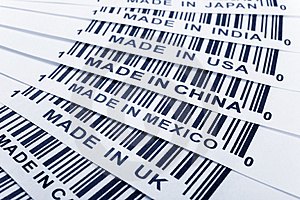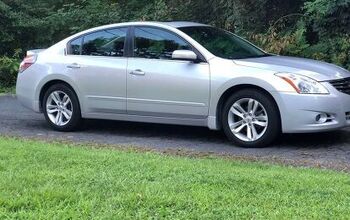Trade War Watch 3: U.S. Tire Prices to Rise 20-30%
Our man Bertel Schmitt sees President Obama’s decision to place a 35 percent import tax on Chinese-made tires as counterproductive political pandering. Unless the Prez decides to please his friends in The United Steel Workers (ex-employer of the current chief of the Presidential Task Force on Automobiles, Ron Bloom) by slapping a tax ALL imported tires,
production of said rubber will simply shift to another low-wage country. As the Wall Street Journal points out, US tire sizes mean that could take a while. The WSJ counts the cost to consumers.
The tariffs, which apply to all Chinese tires, will cut off much of the flow of the more than 46 million Chinese tires that came to the U.S. last year, nearly 17% of all tires sold in the country . . .
“I think within the next 60 days you’ll see some pretty significant price increases,” said Jim Mayfield, president of Del-Nat Tire Corp. of Memphis, Tenn., a large importer and distributor of Chinese tires. He estimates prices for “entry-level” tires could increase 20% to 30%.
Demand meets diminished supply. Which also means . . .
There could also be shortages, Mr. Mayfield said, as existing supplies run low and importers have trouble finding alternative sources. Many importers stopped placing orders for Chinese tires several weeks ago, fearing they might end up ordering tires that would carry a hefty tariff by the time they arrived in U.S. ports.
And speaking of unintended consequences, the domestic tire industry Mr. Obama seeks to protect is not prepared to handle that demand, should the President decide that a national debate over America’s industrial and trade policy should supplant/augment the debate over health care and cap and trade. Hang on, isn’t Bloom the new head of Industrial Policy? Anyway, like I said, you can’t fix stupid.
Meanwhile, a massive reduction in capacity is taking place. In 2005, North America had the capacity to produce 370 million tires. Today, that number has been cut by more than 40 million — and a further 35 million are in the process of being eliminated.
The chance of that trend being reversed by this tariff are what, exactly?
Update: China is now moving towards imposing tariffs on chicken and auto parts imported from the US. It’s a little tough to imagine much of a market for American chicken and auto parts in China, given the population of Chinese chicken and the wide array of auto parts produced there, not to mention that America buys $4.46 worth of Chinese stuff for every $1 worth of American stuff bought by the Chinese. Nevertheless, $800M worth of American-made auto equipment and $376M worth of starred-and-striped chicken meat went to China between January and July of 2009, during which time China sent America $1.3B worth of tires.
More by Robert Farago
Latest Car Reviews
Read moreLatest Product Reviews
Read moreRecent Comments
- Tane94 Not New Jersey, that's for sure!!
- Syke Hopefully they do consider the American market, as I'll be looking at trading in my current Bolt sometime in '25 or '26, and we've had a long good experience with Kia products. Given what GM is currently promising, I'll be looking at Kia well before any upcoming GM product.
- Jkross22 Full self drive - lol, Tesla isn't immune from naming things that are the opposite of what they are and what they do.
- Elrond Why does TTAC, the Press, Commenters, and even General Motors use "GM" when referencing? They changed it to gm quite a while ago.
- Corey Lewis A too-big building that's dated. Easier to sell it off than mess with its continual administration.



































Comments
Join the conversation
I have a set of Kumho Solus HP4s and they have on the sidewall, "MADE IN CHINA". Any questions? And they are all four egg-shaped and crowned. The Honda Accord drives completely differently after a rotation. I have to adjust to it every time I do it. NEVER a Kumho again, whether they make them at home or not. Terrible tires.
@ geeber But it’s virtually impossible to do that... And it would be worthless to try. It's called diminished returns. Model confidence improves rapidly to a point.